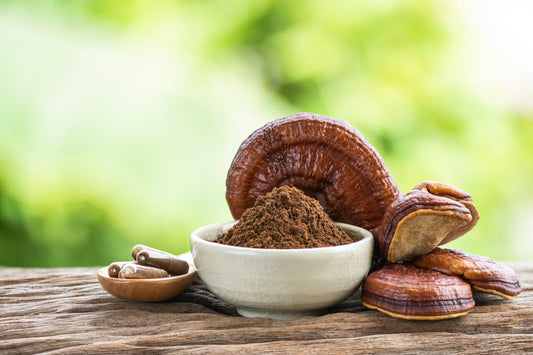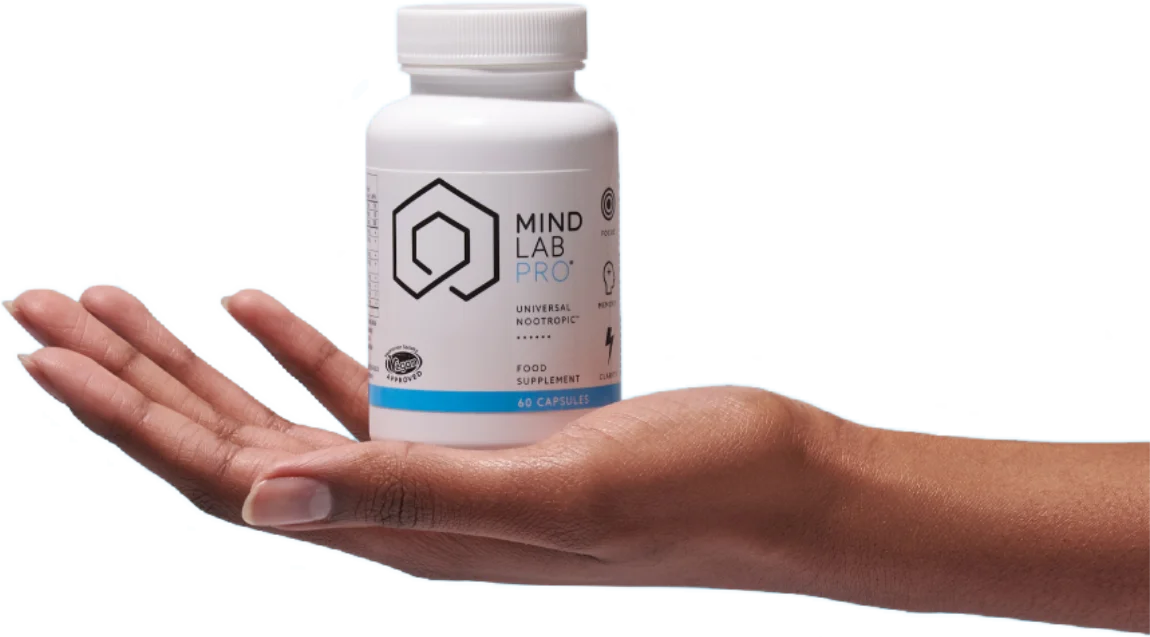Have you ever found yourself walking into a room and immediately forgetting why you went there? Or struggled to recall the name of an acquaintance you just met? Forgetting can be frustrating and even unsettling. While it's easy to think of memory as a flawless recording device, the truth is that our brains are constantly engaged in a complex and dynamic process of both remembering and forgetting.
Far from being a simple failure of the mind, forgetting is an essential function that helps our brains stay efficient, prioritize information, and make room for new experiences. This article will explore the fascinating science behind memory, including why and how we forget, examining the different theories that explain this fundamental aspect of human cognition. Ready to find out why we forget and how to remember better? Let's get to it!
Key Takeaways
- Forgetting is adaptive: The brain prunes and filters to reduce noise, prioritize what matters, and enable flexible thinking.
- Encoding failures: If attention is split or meaning isn’t processed, information never consolidates into durable memory.
- Storage decay: Without reinforcement, synaptic traces weaken over time (the classic “forgetting curve”).
- Retrieval failure: Memories exist but are temporarily inaccessible—often because the right cues or context are missing.
- Interference: Old learning can block new (proactive) and new learning can overwrite old (retroactive).
- Context & state dependence: Recall improves when internal states and external contexts match those present at learning.
- Consolidation needs sleep: How does sleep affect memory? Deep and REM sleep stabilize and integrate memories; poor sleep accelerates forgetting and memory loss.
- Stress cuts both ways: Acute arousal may boost encoding of salient details; chronic stress and high cortisol impair hippocampal function.
- Working-memory limits: Overload and multitasking reduce the likelihood that information transitions to long-term human memory.
- Reconstruction & distortion: Memory is not a recording; it’s rebuilt on recall and is vulnerable to suggestion, bias, and source errors.
- Different systems, different vulnerabilities: Short-term/working, episodic, semantic, and procedural memories forget for different reasons.
- Beating forgetting: Use spaced repetition, retrieval practice, elaboration, interleaving, sleep, exercise, and strong cues in everyday life to make memories stick.
Sometimes We Want to Forget
I remember it like it was yesterday:
1984: The Class Assembly.
The theme: Something spooky. We were wearing handmade 'scary' masks.
The stage: Makeshift, backless, an accident waiting to happen.
The hall filled up. The crowd settled. The lights were turned off.
"GO GO GO!"
20 six-year-olds creep in. With only the glow from their handheld torches, spookily uplighting their gruesome masks. They climb the stage and take their places in darkness...
And as they do, the entire back row is wiped out. Chairs, arms, legs clattering head over heels. Plummeting backwards into the backstage abyss.
It's carnage.
Melissa Clarke lost a front tooth, Billy Woodham had a suspected concussion. The rest of us: mild bruising and a vow to never 'tread the boards' again.
It's ok, nobody was seriously hurt.
But whenever I think back to that moment, I can picture the dimly lit school hall. I can feel the anticipation. I think I can even smell the musty wooden stage blocks. And I remember feeling gutted that in one, well intentioned yet calamitous moment, our play was over before it had even begun.
FIN.
That was 40 years ago.
Ask me today whether I turned the iron off this morning...and I'll have to go check.
Why is it that we can remember the finer details of something that happened decades ago, but we can't remember the name of that person we met last week?
Why do we remember some things and not others?
How Are Memories Formed?

When we experience something, our senses pick up information from our environment. This information is converted into patterns of electrical and chemical activity, which travels through a network of neurons. Neurons communicate via neurotransmitters at dedicated sites throughout the brain called synapses.
Cognitive and behavioral neurology suggests when two neurons communicate repeatedly, the efficiency of communication between them increases. And our ability to recall is strengthened.
How can we encourage our neurons to communicate?
When we first experience something, this information goes into Short-Term Memory.
Short-term memory works like a busy, jam-packed audition stage.
Every experience is competing to get through to the next stage: Long-Term Memory.
Each potential memory has roughly 30 seconds to make a lasting impression.
Yep, our brains can only store short-term memories for up to one minute. (1)
If they don't stand out, they don't make the cut.
And with a constant stream of new experiences entering the arena, there's heavy competition. This selective process ensures that our brain conserves resources. The prestigious long-term storage is reserved for information that is most relevant, useful, or emotionally significant.
Our brains are designed to forget.
So, what does it take for a short-term memory to make it through?
The Three Stages of Memory

Memory isn't kept in a neat and tidy area like on a hard drive, or in a well-organized filing cabinet. There's no one designated memory structure.
Instead, memory research shows that recalling info can be a bit of a biological mess.
The truth is, as we age, memories get jumbled and fade. The way that we form and store memories plays a key role in how easily we can retrieve them.
We can break this complex process down into three critical stages: encoding, storage and retrieval.
Stage 1: Encoding
This is the first step. It's what turns an experience into a memory.
Each experience must be significant enough for the brain to encode and store it in neural networks, enabling later retrieval. There are three main types of encoding:
Visual Encoding
The class assembly was memorable because there were plenty of visually encoded elements. The handmade scary masks. The torchlit school hall. The makeshift stage.
A 1970s study by Lionel Standing demonstrates just how strong visual encoding is. (2) Participants were presented with 10,000 mundane images over several days, followed by a two day break.
In the recall test, they were shown pairs of images—one they had previously seen, and one new. They were asked to identify the familiar one. Participants correctly recognized 66% of the images.
Then they tried something more obscure. A subset of 1,000 more distinctive images. Maybe a dog in a top hat riding a bicycle, or a chicken in a tutu drinking beer. When they tested these 1,000 unique images, participants remembered 88% of them.
We remember what we can visualize. Especially if it's not what we expected.
Acoustic Encoding
Sounds trigger memory recall. In the assembly memory it was the cue "GO GO GO!" and the sound of the clattering fall.
Acoustic encoding could be a favorite song that triggers a memory of being somewhere or with someone. A first dance, or a festival.
In fact, combining two types of encoding will strengthen a memory further.
If we repeatedly experience that song along with the visual context, the neurons involved in processing the acoustic and visual stimuli communicate more frequently. This repeated neural activity can lead to long-term potentiation (LTP). Where the efficiency of synaptic transmission between these neurons is enhanced. Making the memory of the song, and the setting, more vivid and easier to retrieve.
Semantic Encoding
This ties personal significance to an event.
As legendary poet Maya Angelou famously said, "People will forget what you said, people will forget what you did, but people will never forget how you made them feel."
Your brain works in a similar way.
In my memory, I could recall the feeling of anticipation before the assembly started. The emotional aftermath of seeing a friend lose a tooth. And the feeling of disappointment that it had all gone so wrong.
These all tie emotion and feeling to the event which strengthens the memory.
Stage 2: Storage

We've encoded our experience, now we need to store it so we can access it in the future.
Most eminent memory scientists report that memory storage isn't located in just one part of the brain. Instead, it's a dynamic process that involves various brain regions, depending on the type of information being stored.
There are three main types of memory storage:
Sensory Memory: The most fleeting form of memory, lasting up to a few seconds. It's an exact replica of an observed scene or sound, holding information long enough for it to be processed further.
Short-Term Memory (STM) or Working Memory: This acts as a buffer for new information, where it's held temporarily and manipulated. STM can store information for about 20 to 30 seconds. A study carried out by researcher George Miller in 1956 suggested our short-term memory has a limited capacity. And can only store five to nine items at a time. (3) Which means something must give.
It's here that information can be lost.
Either because it's displaced by new information, or it's not encoded into long-term memory.
Long-Term Memory (LTM): This is the stage of memory capable of storing information for long periods, from days to decades. LTM has a seemingly unlimited capacity and is where most of the information is stored. It includes everything from procedural memory, like how to ride a bike, to episodic memory, which involves our life events, and semantic memory, the facts and knowledge we accumulate.
Stage 3: Retrieval
Retrieval can occur in several ways, including recall, recognition, and relearning:
Recall is bringing a memory back into mind without any external cues. It's what we do during a test when we try to remember the answer to a question.
Recognition involves identifying information in the presence of cues. These cues act as triggers. Making it easier to retrieve associated memories without the need for recall from scratch. Those cues could be anything mentioned in the encoding stage.
Relearning is a measure of how much faster we reacquire knowledge that we've previously learned and then forgotten. Those French lessons we took at school. Should we ever find ourselves speed dating in Paris, we'll be able to effortlessly communicate our name, age, and what our parents do for a living.
Find out about the best nootropics for language
Sometimes, things we think we've forgotten are still stored in long-term memory.
Retrieval is a dynamic process that can sometimes change the memory itself.
Each time we recall a memory, it can be slightly altered or reinforced, a phenomenon known as "reconsolidation." This means that memories are not static but are continually being updated and reshaped by our experiences.
It's why some people remember things differently to others. And it's why some memories get jumbled.
Did You Know? Music Affects Memory.
Music's effect on memory is a fascinating and multifaceted process. It can act as a potent trigger for autobiographical memories, with a familiar song having the power to transport an individual back to a specific time and place. This is because music engages a wide network of brain regions, including those involved in emotion and memory. While listening to music with lyrics can be a distraction when trying to learn new information, instrumental music may help some people improve focus. Furthermore, the brain's ability to process and recall music often remains intact even in the face of cognitive decline, making music a valuable tool in therapeutic settings for individuals with memory-related concerns.
Why Do Some Memories Get Lost?

Memories can be lost for several reasons, ranging from poor sleep to more serious memory disorders:
Encoding Failure
What did you have for lunch on the 12th January? Does it matter? Probably not. So our brain lets it go. Some memories don't make the cut. We don't need to remember everything.
Time Decay
Over time, memories can fade, especially if they're not revisited or reinforced. It's natural. Fading occurs because neural connections that represent the memory, weaken if they're not activated through recall or related experiences.
Regularly revisiting memories can help maintain their strength, but without reinforcement, even significant memories can gradually fade.
Insufficient Cues
Memories are often tied to specific cues; without them, recalling information can be challenging. It's why it's important to be able to focus, take our time and take in all the sensory details. Strengthening memories through multiple associations can enhance recall.
Aging
Normal aging leads to changes in the brain can affect memory. The hippocampus loses 5% of its neurons every decade after the age of 40. (4) And by the time we're 80, it's estimated that we've lost 20%. Age-related concerns like Alzheimer's disease can also lead to memory failures and otherwise affect how memory changes over time.
Synaptic connections may weaken. (5) Brain volume can decrease, levels of the neurotransmitter acetylcholine (important for attention and memory) may drop, and nutrient deficiencies (like B vitamins) can lead to decreased focus.
If we can't focus, we can't take note. And therefore, we may not remember details as well as we used to.
Isolation
Staying socially active is a key part of healthy cognition, including memory. Social isolation, especially in older adults, can accelerate memory decline. Social interactions stimulate the brain in complex ways, acting as a form of cognitive exercise that maintains memory function. Studies suggest that maintaining social connections can slow memory deterioration over time, emphasizing the role of social engagement in cognitive health. (6)
Stress
While short-term stress can increase alertness, chronic stress can harm the brain. (7) It floods the body with stress hormones, leading to a loss of brain cells and hindering the ability to form new memories. This excessive stress can negatively impact both the storage and retrieval processes of memory. Check out the list of adaptogen herbs that help fight the negative effects of stress
Depression
Depression can increase the risk of memory problems by 40%, partly due to low levels of serotonin, which affects alertness and attention. (8) If we're less alert, less aroused, we pay less attention. Which in turn affects encoding.
Discover the top mushrooms for helping with depression
If, after reading that, it feels like the odds are against us. There's good news. A lot can be done in the way of lifestyle choices that can help keep our memories safe.
A Word on False Memories
The human mind's ability to form false memories is a fascinating and often unsettling aspect of the science behind memory. These memory distortions can be so vivid and convincing that individuals genuinely believe they are recalling a past event that never happened. The line between a true and false memory can become incredibly blurred, as research by eminent memory scientists has shown in peer reviewed journals. They've demonstrated how suggestion, misinformation, and other psychological factors can lead people to "remember" details or even entire events that are completely fabricated. Understanding this phenomenon highlights that memory is not a perfect record, but rather a reconstructive process prone to error.
I used to be very forgetful. Now I almost never forget anything, so I can recall anything anytime.Maan B.

How to Strengthen Memory

Improving one's memory is all about empowering, preserving, and strengthening our neurons.
If you think of neurons as the runners in an Olympic relay team, and the information they're passing as the baton. The result of the race depends on the strength of the runners. So, strengthen those neurons.
This can be done with the following practical tips:
Stay Physically Active
Exercise isn't just good for your body; it's vital for your brain too. Regular physical activity has been shown to improve cognition and memory. A study published in the Journal of Aging Research found out how exercise (aerobic) can enhance the size of the hippocampus, a brain area involved in better memory and learning. (9)
Eat Smart
Diet plays a crucial role in brain health. The Mediterranean diet, rich in antioxidants, omega 3s and brain-boosting nutrients like Vitamin E, Vitamin B12 and folate has been linked to lower cognitive decline in numerous studies. (10) B12 in particular helps form myelin, the fatty surrounding that protects neurons. (11)
Incorporate Supplements
Particularly for older adults, certain supplements can be key. B vitamins, omega-3 fatty acids, and vitamin D have been shown to support brain health and cognitive function. (12, 13, 14) As we age, our bodies may not absorb nutrients as efficiently, making supplementation necessary to fill in the gaps.
Discover top nootropic supplements for enhancing memory
Challenge Your Brain
Similar to how we build muscle strength through physical exercise. Learning new skills can strengthen our brain. Learning a new language, playing an instrument, or getting stuck into a word puzzle, keeps the brain active as it creates new neural connections (known as neuroplasticity). Computerized brain training games and other brain games like puzzles and Sudoku may also help. (15)
Live in the Moment
In addition to the more complex methods mentioned above is one straightforward tactic for healthy memory: Get out there and experience daily life.
And do it for real, not through a phone. Reducing screen time and being present in our experiences allows us to fully engage and encode memories effectively.
See it, hear it, feel it.
When our heads are down, we're not taking note of what's around us. Take time, take note, and engage with the real world.

Summary
So why we forget and how to remember better? Forgetting isn’t a bug; it’s a feature. The brain constantly filters, edits, and prunes information to stay efficient, prioritizing how different memories are stored and freeing space for new learning. We lose details for many reasons -- weak initial encoding (split attention, shallow processing), natural storage decay over time, retrieval glitches when cues or context don’t match, and interference from similar memories.
Here are some takeaways from modern cognitive science. Sleep consolidates memories; poor sleep speeds forgetting. Stress can sharpen encoding in the moment but -- when chronic -- erodes hippocampal function. Different memory systems (working, episodic, semantic, procedural) fail for different reasons, and every recall “rebuilds” the memory, inviting distortion, making it harder to remember and retrieve memories.
The good news: you can tilt the odds in your favor when it comes to your own memory. Deepen encoding (attention, elaboration, multisensory cues), practice retrieval often (spaced repetition, testing effect, memorize all your passwords), vary contexts, and protect consolidation with quality sleep. Support the system with movement, social connection, nutrient-dense diets, and stress management. Whether you're a student, a learner, or a business professional preparing to excel, the helpful advice on memory aids in this guide can help.
In short, forgetting is how the brain stays agile; learning to work with those mechanics is how you remember what matters. And as with other cognitive functions, we can explain the complex theories behind memory rather simply: healthy brain happy life.
References
- Cascella M, Al Khalili Y. Short-Term Memory Impairment. [Updated 2024 Jun 8]. In: StatPearls [Internet]. Treasure Island (FL): StatPearls Publishing; 2025 Jan-. Link
- Standing L. Learning 10,000 pictures. Q J Exp Psychol. 1973 May;25(2):207-22. Link
- https://psychclassics.yorku.ca/Miller/
- Peters R. Ageing and the brain. Postgrad Med J. 2006 Feb;82(964):84-8. Link
- Kumar A, Foster TC. Neurophysiology of Old Neurons and Synapses. In: Riddle DR, editor. Brain Aging: Models, Methods, and Mechanisms. Boca Raton (FL): CRC Press/Taylor & Francis; 2007. Chapter 10.Link
- Ertel KA, Glymour MM, Berkman LF. Effects of social integration on preserving memory function in a nationally representative US elderly population. Am J Public Health. 2008 Jul;98(7):1215-20. Link
- McEwen BS. Neurobiological and Systemic Effects of Chronic Stress. Chronic Stress (Thousand Oaks). 2017 Jan-Dec;1:2470547017692328. Epub 2017 Apr 10. Link
- Wallensten J, Ljunggren G, Nager A, Wachtler C, Bogdanovic N, Petrovic P, Carlsson AC. Stress, depression, and risk of dementia - a cohort study in the total population between 18 and 65 years old in Region Stockholm. Alzheimers Res Ther. 2023 Oct 2;15(1):161. Link
- Erickson KI, Voss MW, Prakash RS, Basak C, Szabo A, Chaddock L, Kim JS, Heo S, Alves H, White SM, Wojcicki TR, Mailey E, Vieira VJ, Martin SA, Pence BD, Woods JA, McAuley E, Kramer AF. Exercise training increases size of hippocampus and improves memory. Proc Natl Acad Sci U S A. 2011 Feb 15;108(7):3017-22. Link
- Petersson SD, Philippou E. Mediterranean Diet, Cognitive Function, and Dementia: A Systematic Review of the Evidence. Adv Nutr. 2016 Sep 15;7(5):889-904. Link
- Calderón-Ospina CA, Nava-Mesa MO. B Vitamins in the nervous system: Current knowledge of the biochemical modes of action and synergies of thiamine, pyridoxine, and cobalamin. CNS Neurosci Ther. 2020 Jan;26(1):5-13. Link
- Li S, Guo Y, Men J, Fu H, Xu T. The preventive efficacy of vitamin B supplements on the cognitive decline of elderly adults: a systematic review and meta-analysis. BMC Geriatr. 2021 Jun 16;21(1):367. Link
- Dighriri IM, Alsubaie AM, Hakami FM, Hamithi DM, Alshekh MM, Khobrani FA, Dalak FE, Hakami AA, Alsueaadi EH, Alsaawi LS, Alshammari SF, Alqahtani AS, Alawi IA, Aljuaid AA, Tawhari MQ. Effects of Omega-3 Polyunsaturated Fatty Acids on Brain Functions: A Systematic Review. Cureus. 2022 Oct 9;14(10):e30091. Link
- Yang T, Wang H, Xiong Y, Chen C, Duan K, Jia J, Ma F. Vitamin D Supplementation Improves Cognitive Function Through Reducing Oxidative Stress Regulated by Telomere Length in Older Adults with Mild Cognitive Impairment: A 12-Month Randomized Controlled Trial. J Alzheimers Dis. 2020;78(4):1509-1518. Link
- Owens MT, Tanner KD. Teaching as Brain Changing: Exploring Connections between Neuroscience and Innovative Teaching. CBE Life Sci Educ. 2017 Summer;16(2):fe2. Link




